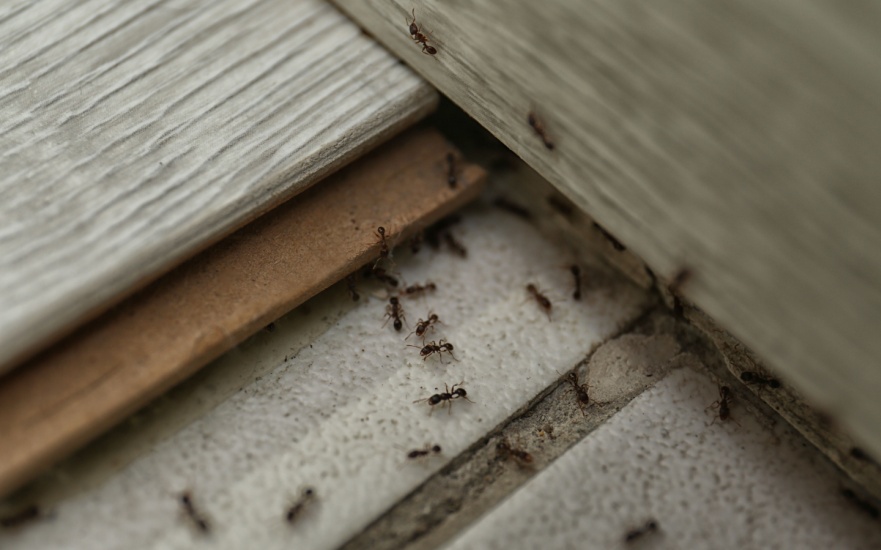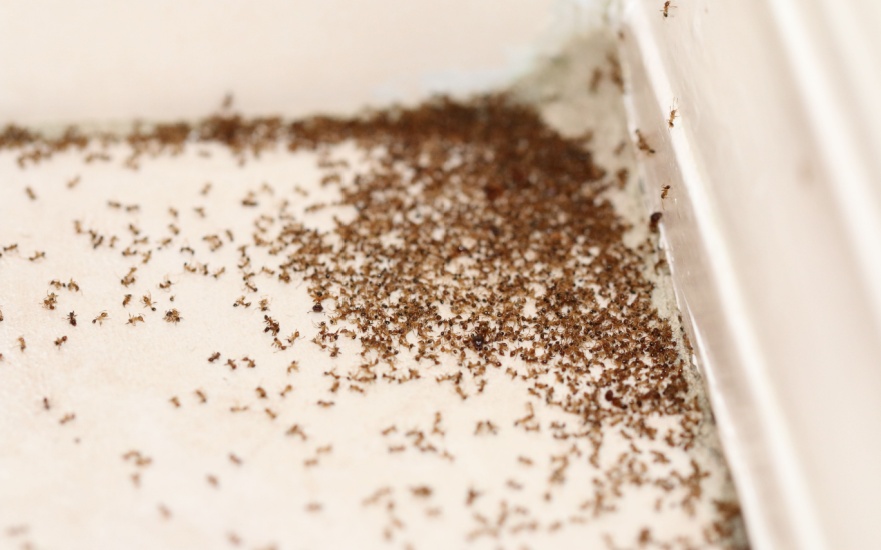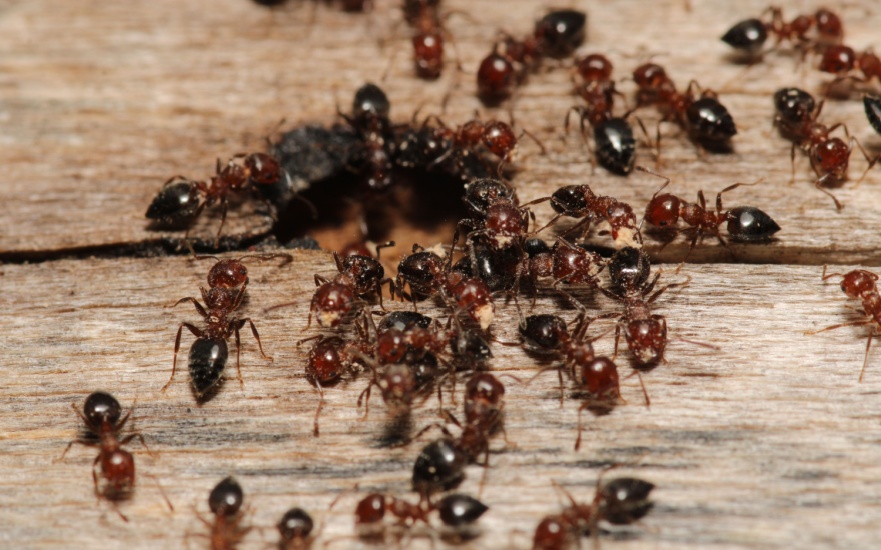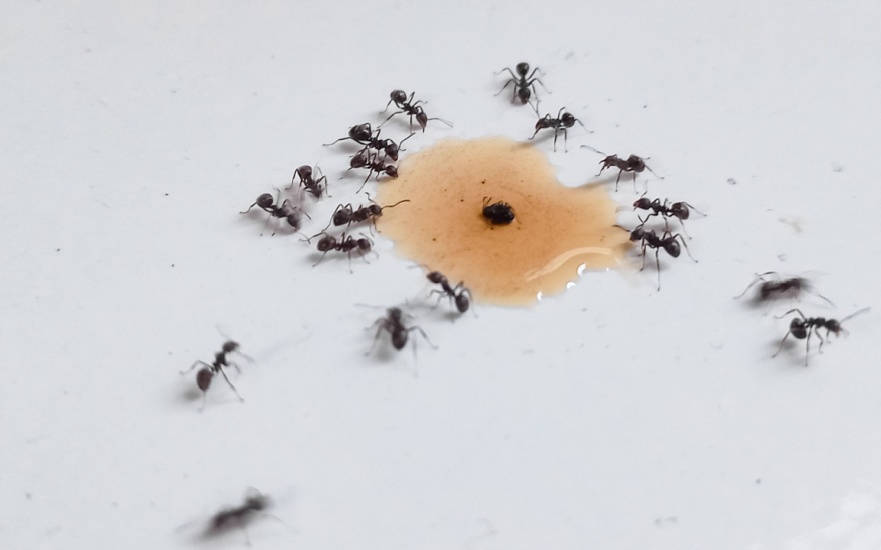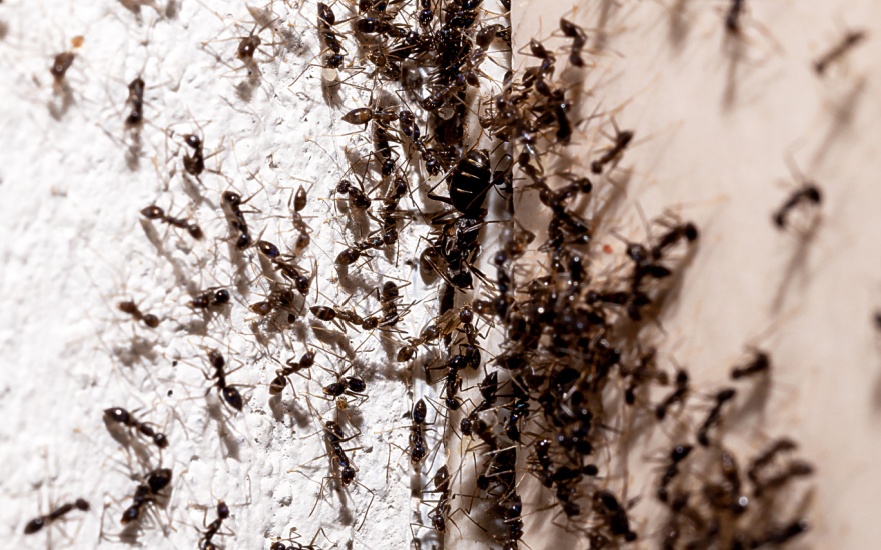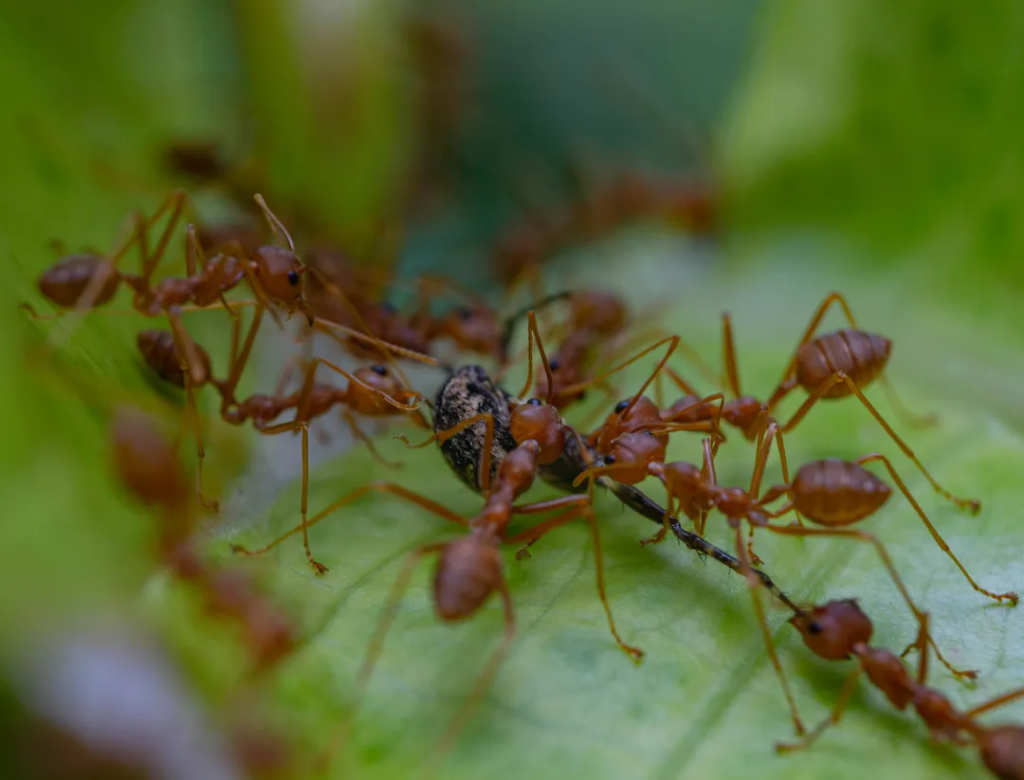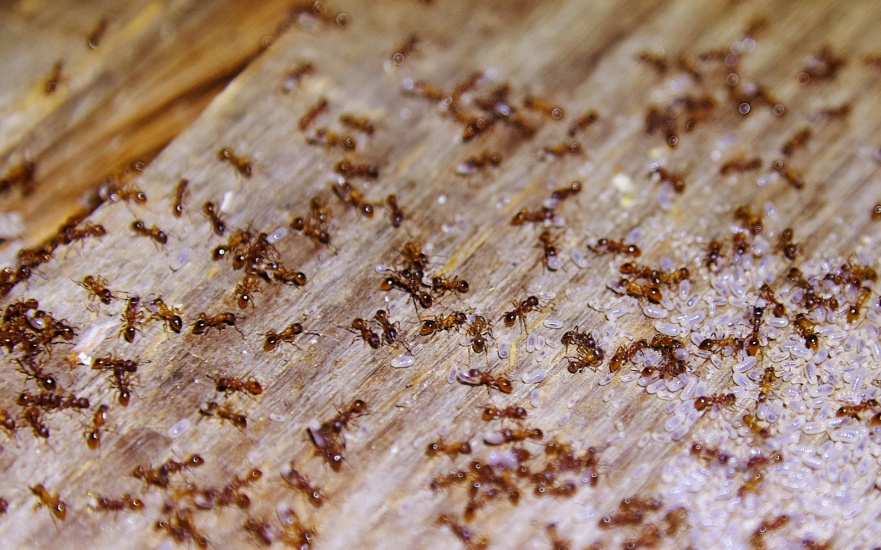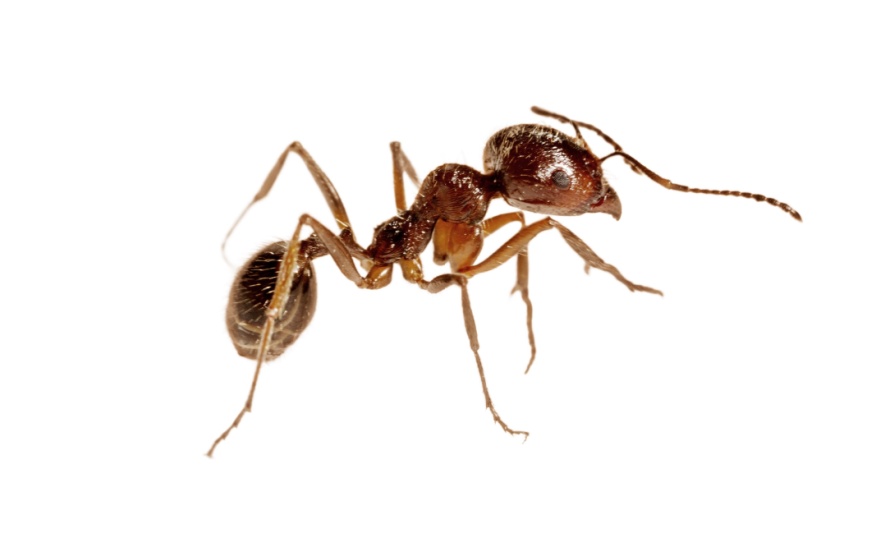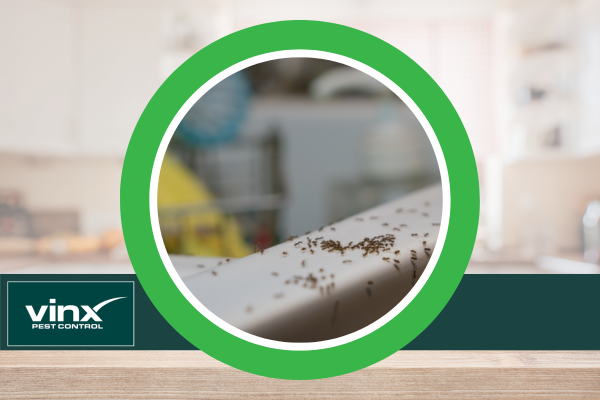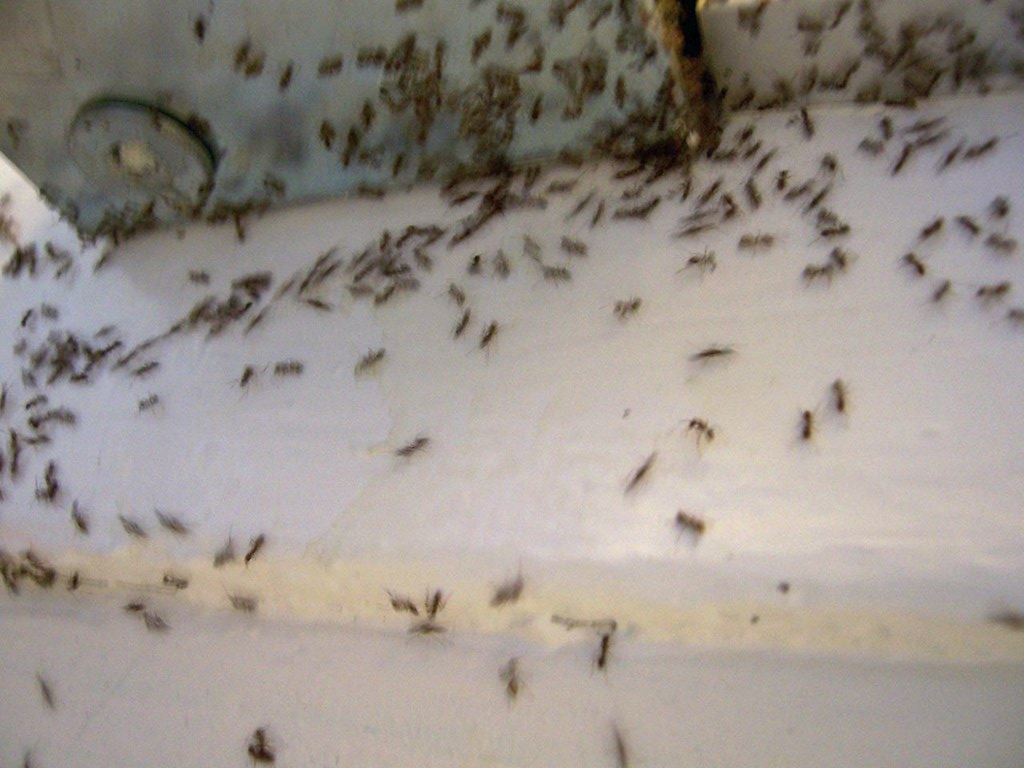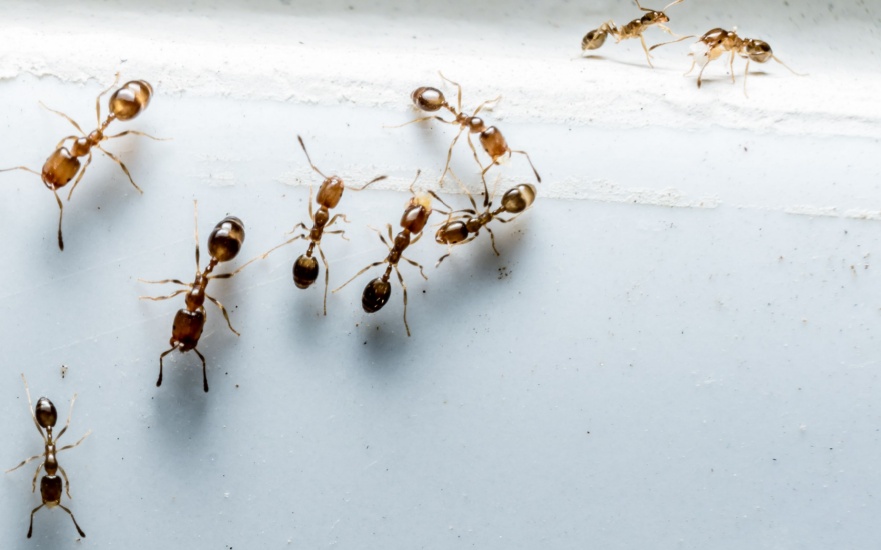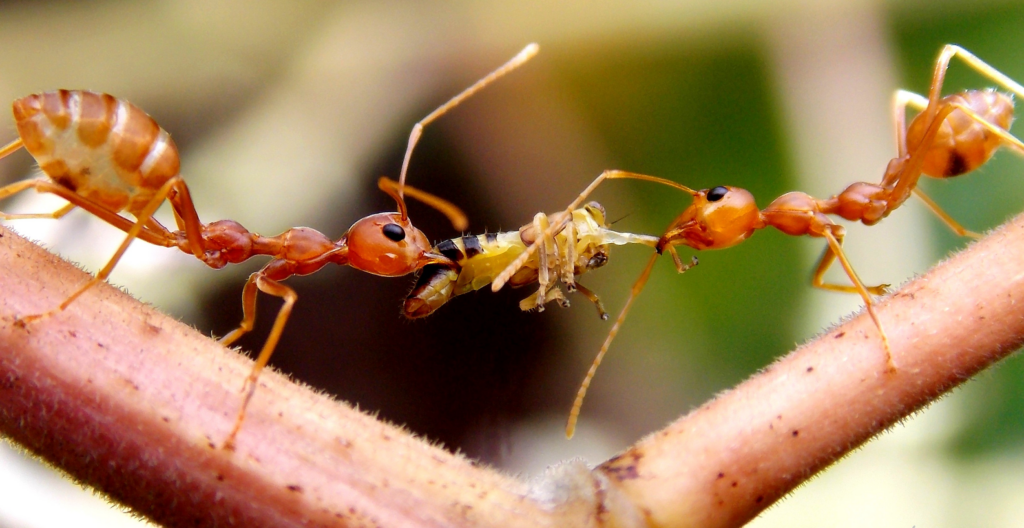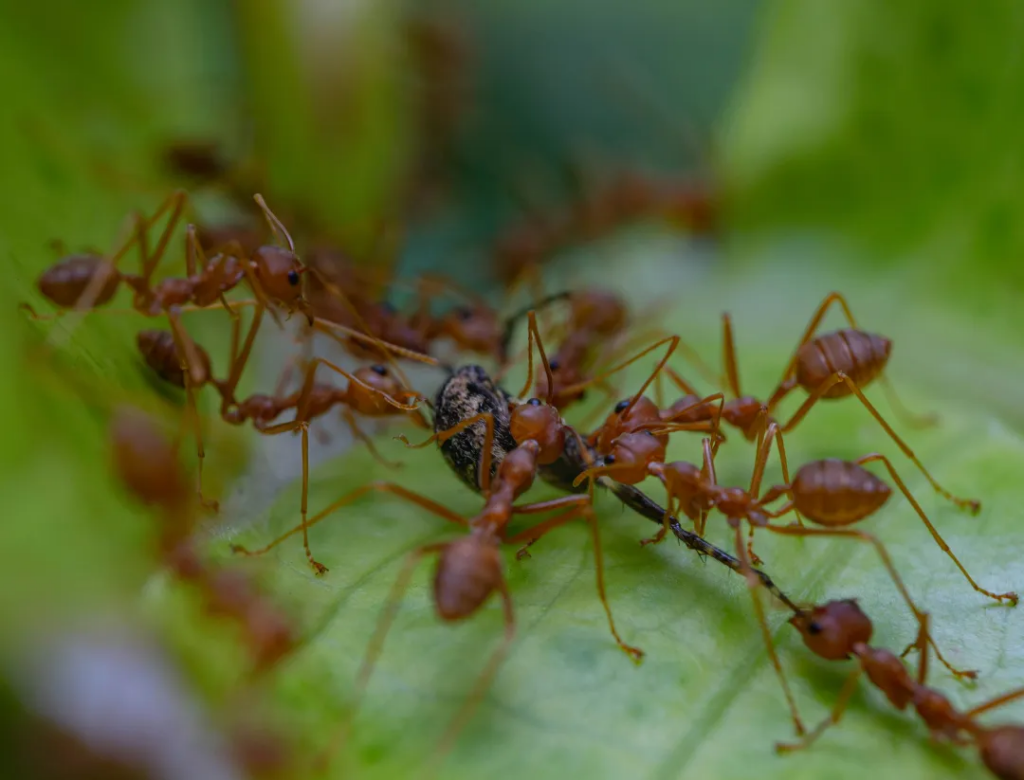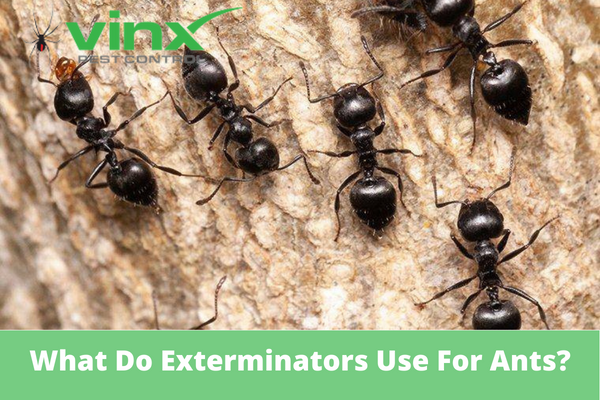Dealing with ants at home can be really frustrating. They keep coming back, and it’s a big worry. At Vinx Pest Control, we get how annoying and stressful this is.
Ants live in groups and come back often. This means there’s a bigger problem. Knowing why ants keep coming back is key to solving the issue.
We’ll look into why ants keep coming back. We’ll also share expert tips on how to control them.
Key Takeaways
- Understanding ant behavior is key to effective pest control.
- Ants are attracted to food and water sources.
- Colony size and location play a significant role in ant infestations.
- Effective pest control requires a complete approach.
- Vinx Pest Control offers expert solutions to ant problems.
The Persistent Nature of Ant Infestations
Ants can be very hard to get rid of from homes. At Vinx Pest Control, we know ant problems are serious. They need a big solution.
Why Ants Are Difficult to Eliminate
Ants live in big groups and have different jobs. This makes them hard to get rid of. Knowing how ants act is key to stopping them.
The Cycle of Reinfestation
Ants keep coming back because of their life cycle. They can come back through new queens or workers. Each ant species is different, which makes solving the problem harder.
Also, ants are small and can sneak into homes. Their tiny size and ability to find tiny openings are big challenges. We use this knowledge to stop them from coming back.
Understanding Ant Behavior and Biology
Learning about ant behavior and biology is key for controlling ants. At Vinx Pest Control, we know ants are very social. They live in complex societies with different roles and ways to talk to each other.
Ant Communication Systems
Ants talk to each other mainly through chemical signals, called pheromones. These signals warn other ants of danger, mark paths, or show where food is. For example, when an ant finds food, it leaves pheromones for others to follow.
Colony Structure and Organization
Ant colonies have strict roles for each ant. The queen ant is very important. She lays eggs and keeps the colony going. Worker ants, mostly female, find food, take care of young, and keep the colony in order.
Foraging Patterns and Territory
Ants search for food and resources. Different kinds of ants look for different things. Some like sweet stuff, others like protein. Knowing this helps us stop ants from coming in.
By learning about ants, we can fight them better. We find where they come in, get rid of food they like, and use special treatments. These treatments aim at the queen and the colony’s social setup.
Common Ant Species in American Homes
Knowing the different ants in American homes is key for good pest control. At Vinx Pest Control, we focus on finding the right ant to control it well.
Many ants invade American homes. Each has its own ways and likes. The most common are carpenter ants, odorous house ants, fire ants, and pavement ants.
Carpenter Ants and Structural Damage
Carpenter ants can harm homes by digging in wood. They make nests that can weaken a house. They like moist wood and can be stopped by fixing moisture problems.
Odorous House Ants and Kitchen Invasions
Odorous house ants love kitchens for sweets. They are a big problem and can spoil food. They follow trails, so finding and stopping their food is key.
Fire Ants and Outdoor Threats
Fire ants are a big problem outside, not just in homes. They sting painfully and are aggressive. To fight fire ants, you need a big plan, including treating mounds and stopping them from coming back.
Pavement Ants and Foundation Problems
Pavement ants live near pavement and can harm home foundations. They show there might be moisture problems. At Vinx Pest Control, we fix pavement ants by sealing holes and fixing moisture. For more on our ant services, check our Allen ant control page.
Learning about ants helps homeowners fight them. At Vinx Pest Control, we help you deal with ants and stop them from coming back.
Why DIY Ant Control Methods Frequently Fail
DIY ant control methods often fail because they don’t solve the main problems. People usually just treat the symptoms, not the real issues. It’s important to know how social insects like ants work to control them well.
Over-the-Counter Products: Limitations and Misuse
Many over-the-counter products are out there, but people misuse them a lot. These products don’t always hit the ant colony’s home right. For example, using baits without knowing the ant type can fail.
Studies in entomology show that different ants react differently to baits. This makes it hard to find the right solution.
Treating Symptoms Instead of Causes
DIY methods often just deal with the ant problems we see. It’s like trying to control an ant farm without knowing the colony’s social rules. To really solve the problem, we need to find and fix the main reasons, like moisture or food that attracts ants.
The Rebound Effect of Improper Treatment
When treatment goes wrong, it can make things worse. Ants can spread out and start new colonies. This is seen in some social insects. Getting help from experts is key to avoid this and keep ants under control for good.
The Queen Ant: The True Source of Infestations
At the heart of every ant infestation is a queen ant. She is the key to the colony’s survival and success. Knowing her role is key for good ant control.
Lifespan and Reproductive Capacity
Queen ants live a long time, up to 15 years or more. They lay thousands of eggs every day. This is why ant problems can grow fast if not stopped.
Multiple Queens and Super Colonies
Some ants, like certain invaders, have super colonies with many queens. This makes it hard to control them. Good pest control plans must think about this.
Targeting Queens for Control
Getting rid of the queen ant is key to controlling ants. Without her, the colony can’t keep growing. At Vinx Pest Control, we focus on finding and killing queen ants. This helps manage ant problems well.
Hidden Entry Points for Ants in Your Home
Knowing how ants get into your home helps stop them. Ants can sneak in through tiny cracks. It’s important to find and block these spots.
Common Structural Vulnerabilities
Ants find weak spots in your home to get in. They look for cracks in the foundation and gaps around windows and doors. They can even get in through tiny openings, like 1/16 inch.
For tips on keeping your home ant-free, check out our guide on preparing your Dallas, TX home for ants.
Seasonal Changes in Entry Patterns
Ants enter your home differently with the seasons. In hot, dry weather, they seek shelter inside. Wet weather can also push them inside, due to flooding or moisture.
Detecting and Sealing Access Points
To stop ants, find and seal all entry points. Look closely at doors, windows, and where utility lines come in. Use caulk or sealant to fill gaps.
Also, consider using door sweeps or weatherstripping to seal under doors. These steps can help keep ants out.
Food Attractants That Keep Ants Coming Back
Ants look for food in homes. Knowing what they like helps stop them from coming back. At Vinx Pest Control, we know what foods attract ants.
Kitchen and Pantry Management
Kitchens and pantries are where ants often start. They like crumbs, spills, and sticky spots. Clean up often and use sealed containers for food.
Pet Food and Outdoor Eating Areas
Pet food outside and unsealed draws ants. Outdoor eating areas with food also attract them. Clean up after pets and meals outside to keep ants away.
Garbage Handling and Storage
Bad garbage handling attracts ants too. Use sealed bins and take out trash often. Keep your home and yard clean of garbage.
Sweet-Loving vs. Protein-Seeking Ant Species
Ants like different foods. Sweet ants go for sugar, while protein ants like meat. Knowing your ants helps you fight them better.
Managing food attractants helps stop ants. At Vinx Pest Control, we help you find and fix ant problems in your home.
Moisture Issues and Ant Infestations
Moisture plays a big role in ant problems. Ants need water to live. If your home has too much moisture, ants might move in.
Water-Seeking Behavior in Different Ant Species
Ants look for water in different ways. Some ants, like the odorous house ant, love wet places. Knowing this helps find where ants are coming from.
Common Household Moisture Problems
There are a few common moisture problems at home:
- Leaks under sinks and around appliances
- Poor drainage around the home’s foundation
- High humidity levels, like in basements or crawl spaces
Fixing Water Issues as Ant Prevention
To stop ants, fix moisture problems. Here’s how:
- Fix leaks and improve drainage
- Use dehumidifiers in wet areas
- Make sure attics and crawl spaces have good air flow
Knowing how moisture affects ants helps keep them away. At Vinx Pest Control, we stress the need for a dry home to keep ants out.
The Neighborhood Ant Problem
Ant control is not just about treating your home. It’s also about understanding the neighborhood dynamics. When ants infest a single property, it’s often a sign of a larger issue affecting multiple homes in the area.
Impact of Nearby Infestations
Nearby ant infestations can significantly affect your property. Ants can travel considerable distances. If neighboring homes are infested, it increases the likelihood of ants entering your home.
Coordinated Control Efforts
Coordinating with your neighbors can be an effective strategy. By working together, you can ensure a more thorough approach to ant control. This reduces the overall ant population in your neighborhood.
Community-Wide Ant Management
Community-wide ant management involves a collective effort. Homeowners, local authorities, and pest control professionals like us at Vinx Pest Control work together. This collaborative approach can lead to more effective and long-lasting results.
Professional Ant Control by Vinx Pest Control
Dealing with ants can be frustrating. But with Vinx Pest Control, you can say goodbye to these unwanted guests. Ants live in complex colonies. Our team knows how to handle them.
Our Comprehensive Inspection Process
We start by checking your property. We find out what kind of ants you have and where they come in. This helps us make a plan just for you.
Targeted Treatment Strategies for Different Species
Different ants need different treatments. Carpenter ants are different from odorous house ants. Our experts know how to treat each one right.
Environmentally Responsible Control Methods
We use safe methods to control ants. This keeps your family, pets, and the environment safe. It also helps manage the ant problem.
Ongoing Monitoring and Prevention Plans
Our service doesn’t stop after treatment. We keep checking and making plans to stop ants from coming back. This includes regular visits and adjusting our plan as needed.
Choosing Vinx Pest Control means you get a complete solution to your ant problem. We want your home to be ant-free. We’re dedicated to making that happen with our professional services.
- Comprehensive inspection to identify ant species and entry points
- Targeted treatment strategies tailored to the specific ant species
- Environmentally responsible control methods for safety and efficacy
- Ongoing monitoring and prevention plans to prevent reinfestation
Environmental Factors Affecting Ant Populations
It’s key to know what affects ant numbers for good pest control. At Vinx Pest Control, we see how important these factors are when fighting ants.
Landscaping Choices That Attract or Repel Ants
How you landscape your yard can really change ant activity. Some plants draw ants, while others keep them away. For example, some plants smell bad to ants, while others have sweet nectar that ants like.
- Use plants like mint or lemongrass around your home to keep ants away.
- Don’t have standing water or damp spots that ants like.
- Keep your yard clean and free of things that ants can hide in.
Weather Patterns and Seasonal Ant Behavior
Weather and seasons change how ants act and their numbers. Ants are more out and about when it’s warm. They might come inside when it’s cold. Knowing this helps us plan how to deal with ants.
Climate Change and Increasing Ant Activity
Climate change is changing where ants live and how active they are. Warmer weather means ants are out longer. This can make their colonies bigger and more active.
Natural Predators and Ecosystem Balance
Natural enemies help keep ant numbers down. It’s important to keep the balance in nature. For more on ants and how to handle them, check out our page on what kind of ants are in Dallas.
Conclusion: Breaking the Cycle of Ant Infestations
To control ants, you need a big plan. Knowing how ants act and live is key. Spotting ant signs and knowing their type is the first step to a pest-free home.
If ants keep coming back, it might mean a bigger problem. At Vinx Pest Control, we tackle all pests, including ants. Our team will find the root of the problem and make a plan just for you. Learn more about our pest control on our website: effective pest control methods.
Together, we can stop ants from taking over your home. Take action now and live in a pest-free space.
FAQ
Q: What attracts ants to my home?
A: Ants like food, moisture, and places to hide. They’re drawn to sweet stuff, pet food, and water. Knowing what attracts them helps us stop them. At Vinx Pest Control, we find and fix these problems.
Q: How do ants communicate with each other?
A: Ants talk with chemical signals, body language, and sounds. These help them work together, mark paths, and warn others. Knowing how they communicate helps us stop them.
Q: What is the role of the queen ant in a colony?
A: The queen ant lays eggs and keeps the colony alive. She can live a long time and make lots of babies. Killing the queen is key to stopping ants.
Q: How can I prevent ants from entering my home?
A: Seal all cracks and keep your home clean. Store food in tight containers and get rid of standing water. We at Vinx Pest Control can help you seal up your home.
Q: What is the difference between carpenter ants and other ant species?
A: Carpenter ants are big and can damage homes. They don’t eat wood but make nests in it. Knowing the difference helps us fight them better.
Q: Can I control ants on my own, or do I need professional help?
A: DIY methods might help a bit, but they don’t solve the problem. Vinx Pest Control offers real solutions with inspections and plans.
Q: How do environmental factors affect ant populations?
A: Things like landscaping and weather change ant numbers. We at Vinx Pest Control consider these when we plan treatments.
Q: What are some common household moisture problems that attract ants?
A: Leaks, clogged drains, and bad air can draw ants. Fixing these stops ants from coming. We at Vinx Pest Control fix these problems.
Q: How can I manage food sources to prevent ant infestations?
A: Keep your kitchen clean and food sealed. Clean up spills and don’t leave food out. We at Vinx Pest Control can give you tips.
Q: What are the benefits of community-wide ant management?
A: Working together with neighbors can really help fight ants. It keeps ants away for good. We at Vinx Pest Control support this approach.



